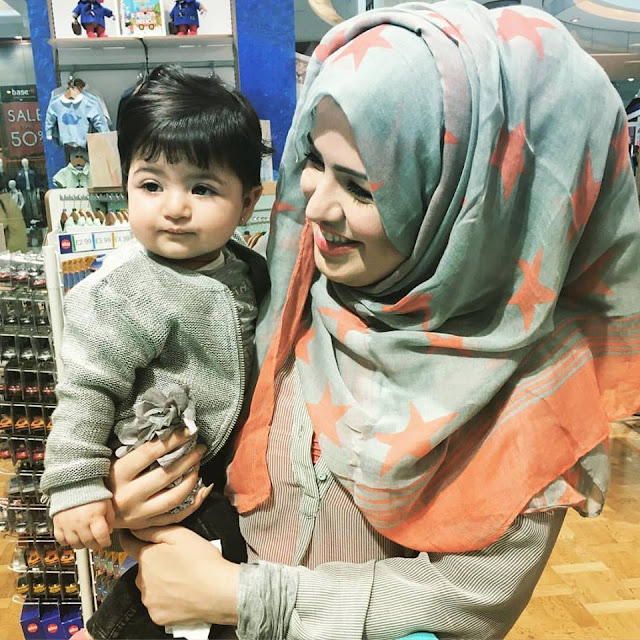Marriage in Islam
In Islam, marriage is a blessed contract between a man and a woman, in which each becomes “permitted” to the other, and they begin the long journey of life in a spirit of love, cooperation, harmony and tolerance, where each feels at ease with the other, and finds tranquility, contentment and comfort in the company of the other.
The Quran has described this relationship between men and women, which brings love, harmony, trust and compassion, in the most moving and eloquent terms:
"And among His Signs is this, that He created for you mates from among yourselves, that you may dwell in tranquillity with them, and He has put love and mercy between your [hearts]." [Ar-Rum 30:21]
This is the strongest of bonds, in which Allah ta'ala unites the two Muslim partners, who come together on the basis of love, understanding, co-operation and mutual advice, and establish a Muslim family in which children will live and grow up, and they will develop the good character and behaviour taught by Islam.
The Muslim family is the strongest component of a Muslim society when its members are productive and constructive, helping and encouraging one another to be good and righteous, and competing with one another in good works.
The righteous woman is the pillar, cornerstone and foundation of the Muslim family. She is seen as the greatest joy in a man’s life. She is the greatest blessing that Allah (subhaanahu wa ta’ala) can give to a man, for with her he can find comfort and rest after the exhausting struggle of earning a living. With his wife, he can find incomparable tranquillity and pleasure.
Allah, may He be exalted, says (interpretation of the meaning): “And those, who, when they spend, are neither extravagant nor niggardly, but hold a medium (way) between those (extremes)” [al-Furqaan 25:67].
The middle way and moderation cannot be indentified by specific amounts or specific limits, that if a person oversteps steps that mark he can be described as being extravagant and if he falls short of it then he is being a miser or niggardly; rather that varies according to the individual’s situation, whether he is rich or poor, whether it is a case of ordinary expenses or an emergency. It also varies from one place to another, one time to another, and so on. The ruling on whether something is extravagance or not takes into account all of these things. Allah, may He be exalted, says (interpretation of the meaning): “Let the rich man spend according to his means, and the man whose resources are restricted, let him spend according to what Allâh has given him. Allâh puts no burden on any person beyond what He has given him” [al-Talaaq 65:7].
The middle way and moderation cannot be indentified by specific amounts or specific limits, that if a person oversteps steps that mark he can be described as being extravagant and if he falls short of it then he is being a miser or niggardly; rather that varies according to the individual’s situation, whether he is rich or poor, whether it is a case of ordinary expenses or an emergency. It also varies from one place to another, one time to another, and so on. The ruling on whether something is extravagance or not takes into account all of these things. Allah, may He be exalted, says (interpretation of the meaning): “Let the rich man spend according to his means, and the man whose resources are restricted, let him spend according to what Allâh has given him. Allâh puts no burden on any person beyond what He has given him” [al-Talaaq 65:7].
The guidance of the Prophet (blessings and peace of Allaah be upon him) with regard to marriage was that he encouraged making it easy, announcing it and proclaiming it openly, and expressing joy and happiness on this occasion; making a wedding feast (waleemah) and inviting people to it; enjoining those who are invited to attend, and even if a person is fasting he should attend and offer du’aa’ for the host of the feast, but he does not have to eat.
Al-Bayhaqi (14721) narrated that the Prophet (blessings and peace of Allaah be upon him) said: “The best of dowries is that which is most affordable.” It was narrated by Abu Dawood (2117) with the wording: “The best of marriages is that which is most affordable.” This was classed as saheeh by al-Albaani.
It says in ‘Awn al-Ma’bood:
i.e., the easiest for the man by making the dowry and so on easy. Al-‘Allaamah al-Shaykh al-‘Azeezi said: i.e., the lowest dowry or the easiest in accepting the proposal.
Ahmad (23957) and Ibn Maajah (4095) narrated from ‘Aaishah (may Allaah be pleased with her) that the Messenger of Allaah (blessings and peace of Allaah be upon him) said: “One of the signs of a woman being blessed is that the process of proposing to her is made easy and the dowry is made affordable and she bears children easily.” Classed as hasan by al-Albaani in Saheeh al-Jaami’ (2235).
Al-Tirmidhi (1114) narrated that ‘Umar ibn al-Khattaab (may Allaah be pleased with him) said: Do not go to extremes with regard to women's dowries. If that were something honourable in this world or a sign of piety before Allaah, then the Prophet of Allaah (blessings and peace of Allaah be upon him) would have been the most entitled to it, but I never heard that the Messenger of Allaah (blessings and peace of Allaah be upon him) offered as a dowry for any of his wives or accepted as a dowry for any of his daughters anything more than twelve uqiyah. Classed as saheeh by al-Albaani in Saheeh al-Tirmidhi.
An uqiyah is 40 dirhams; the weight of a dirham in grams is 2.975 g.
Al-Tirmidhi (1089) narrated from ‘Aa’ishah (may Allaah be pleased with her) that she said: The Messenger of Allaah (blessings and peace of Allaah be upon him) said: “Announce this marriage.” Classed as hasan by al-Albaani in al-Irwa’ (7/50).
Al-Nasaa’i (3369) narrated that Muhammad ibn Haatib (may Allaah be pleased with him) said: The Messenger of Allaah (blessings and peace of Allaah be upon him) said: “What separates halaal from haraam is the daff and singing at the wedding.” Classed as hasan by al-Albaani.
Beating the daff at weddings is limited to women only.
This is a confirmed Sunnah at weddings and it is part of announcing the marriage and of expressing joy and happiness on this occasion.
It was narrated from Anas (may Allaah be pleased with him) that the Prophet (blessings and peace of Allaah be upon him) said to ‘Abd al-Rahmaan ibn ‘Awf when he got married: “Give a feast even if it is with just one sheep.” Agreed upon.
It is permissible to offer a wedding feast without meat. Al-Bukhaari (4213) narrated that Anas (may Allaah be pleased with him) said: The Prophet (blessings and peace of Allaah be upon him) halted between Khaybar and Madeenah for three days, during which he married Safiyyah. I invited the Muslims to his wedding feast, in which there was no bread and no meat; there was nothing except what the Prophet (blessings and peace of Allaah be upon him) commanded Bilaal to spread out of leather mats, on which dates, ghee and dried yoghurt were placed.
And Allaah knows best.
Credits : Guidance , How party should be , Honeymoon
Al-Bayhaqi (14721) narrated that the Prophet (blessings and peace of Allaah be upon him) said: “The best of dowries is that which is most affordable.” It was narrated by Abu Dawood (2117) with the wording: “The best of marriages is that which is most affordable.” This was classed as saheeh by al-Albaani.
It says in ‘Awn al-Ma’bood:
i.e., the easiest for the man by making the dowry and so on easy. Al-‘Allaamah al-Shaykh al-‘Azeezi said: i.e., the lowest dowry or the easiest in accepting the proposal.
Ahmad (23957) and Ibn Maajah (4095) narrated from ‘Aaishah (may Allaah be pleased with her) that the Messenger of Allaah (blessings and peace of Allaah be upon him) said: “One of the signs of a woman being blessed is that the process of proposing to her is made easy and the dowry is made affordable and she bears children easily.” Classed as hasan by al-Albaani in Saheeh al-Jaami’ (2235).
Al-Tirmidhi (1114) narrated that ‘Umar ibn al-Khattaab (may Allaah be pleased with him) said: Do not go to extremes with regard to women's dowries. If that were something honourable in this world or a sign of piety before Allaah, then the Prophet of Allaah (blessings and peace of Allaah be upon him) would have been the most entitled to it, but I never heard that the Messenger of Allaah (blessings and peace of Allaah be upon him) offered as a dowry for any of his wives or accepted as a dowry for any of his daughters anything more than twelve uqiyah. Classed as saheeh by al-Albaani in Saheeh al-Tirmidhi.
An uqiyah is 40 dirhams; the weight of a dirham in grams is 2.975 g.
Al-Tirmidhi (1089) narrated from ‘Aa’ishah (may Allaah be pleased with her) that she said: The Messenger of Allaah (blessings and peace of Allaah be upon him) said: “Announce this marriage.” Classed as hasan by al-Albaani in al-Irwa’ (7/50).
Al-Nasaa’i (3369) narrated that Muhammad ibn Haatib (may Allaah be pleased with him) said: The Messenger of Allaah (blessings and peace of Allaah be upon him) said: “What separates halaal from haraam is the daff and singing at the wedding.” Classed as hasan by al-Albaani.
Beating the daff at weddings is limited to women only.
This is a confirmed Sunnah at weddings and it is part of announcing the marriage and of expressing joy and happiness on this occasion.
It was narrated from Anas (may Allaah be pleased with him) that the Prophet (blessings and peace of Allaah be upon him) said to ‘Abd al-Rahmaan ibn ‘Awf when he got married: “Give a feast even if it is with just one sheep.” Agreed upon.
It is permissible to offer a wedding feast without meat. Al-Bukhaari (4213) narrated that Anas (may Allaah be pleased with him) said: The Prophet (blessings and peace of Allaah be upon him) halted between Khaybar and Madeenah for three days, during which he married Safiyyah. I invited the Muslims to his wedding feast, in which there was no bread and no meat; there was nothing except what the Prophet (blessings and peace of Allaah be upon him) commanded Bilaal to spread out of leather mats, on which dates, ghee and dried yoghurt were placed.
And Allaah knows best.
Credits : Guidance , How party should be , Honeymoon





Comments
Post a Comment
Please share your views here ..